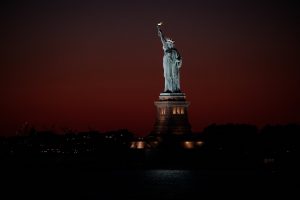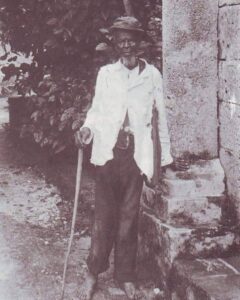BIPOC has become a trendy acronym among people interested in diversity issues, but this is not good.
The “B” stands for Black people, the “I” is for Indigenous persons and the POC stands for people of color.
This effectively shunts Hispanics or Latinos aside. I am Hispanic and, by the way, we are as a group the largest racial/ethnic minority in the United States today. According to the U.S. Census, there are roughly about 60 million of us in the United States, more than 40 million Black Americans and about 5 million Native Americans.
Yet, in my view, BIPOC casually dismisses Latinos because we are lumped into the POC part of the acronym, or the People of Color. Are we not all People of Color, Blacks, Indigenous and the others? Too often I cringe when I see or read reports on crucial minority issues only to see examples relating to Black people. Dismissal of Latino issues has become too much for me. What is worse with BIPOC is that it is coolly overlooked by the very people who consider themselves minority friendly, people who ought to know better. This is one reason I consider this acronym a deliberate slight against people like me, and why I reject its use.
Another reason is that it carelessly dismisses the ugly attacks that have been made against me and my fellow Latinos over the last five years. In his ignorance, former President Donald Trump called Mexican immigrants crossing the border “drug traffickers,” “criminals” and “rapists.” I considered those words so injurious to me and my family, even though our ancestors crossed the border 100 years ago, that at a woman’s march I wore a sign that said, “I just look like a drug trafficker.” Trump never recalibrated his words during his entire administration, much less apologized. In fact, his years in the White House signaled a hushed war against Latinos on many levels, at the Mexican border and away from it. I feel that the term BIPOC ignores this intolerable discrimination.
And what about Asian Americans? Their number is registered at about 23 million. Do they not feel persecuted these days? Where are they in BIPOC? The answer is: they are also hidden away.
Although we Latinos are just as diverse as any other group in America (we can be light-to-dark skinned, claim ancestry to one of many countries in Latin America, etc.) one of the circumstances we share is our non-English language heritage. This automatically makes appreciating us difficult for the average American. If you don’t speak English, you’re dead, and if you speak with an accent, you’re wounded. America’s cultural ethnocentrism acts like a dead weight against any cross-cultural understanding.
It seems that BIPOC became ever popular over the last year or so following the murder of George Floyd, and the growing alarm over the police shootings of Black men and women. Yet, at the same time Latinos suffer twice as much as white people from police brutality. Some reports indicate that in Chicago and Minneapolis, for example, Latinos are killed at six times the rate of white people, according to the database Mapping Police Violence. But these victims of state violence too often go unnoticed. You could say they are invisible; they are Latinos.
I would be the first to recognize the historical discrimination and ostracism of Black Americans in the United States. I grieve the episodic persecutions and violence they have been subjected to, as in the case of the terrible massacre in Tulsa in 1921, all of which gives them the right, in my opinion, to seek equity and justice.
At the same time, we must not erase Latinos in the minds of mainstream Americans. America’s linguistic ethnocentrism makes us nearly invisible already. Let us not make it worse! We Latinos need to seek our equity and justice, too, but we must do it our way.
So let us replace BIPOC with some other phrase or acronym. People of Color sounds just fine to me, since we cannot avoid being identified as different by the average white American. We know that labels on people help and hinder at the same time, so let us reduce the hindrances.




